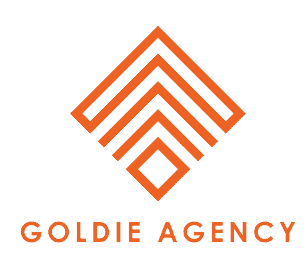Contextual link building is a crucial strategy for boosting your SEO and improving your website’s visibility in search engine rankings.
By strategically placing relevant and informative links within your content, you can enhance the user experience and provide valuable resources for your audience.
In this article, we will explore proven strategies for contextual link building that can help you drive organic traffic and increase your website’s authority.
Table of Contents
Understanding Contextual Links and Their Impact on SEO
Contextual links are hyperlinks embedded within the content of a webpage, surrounded by relevant text.
These links serve two important purposes: providing valuable information to readers and signaling to search engines the importance and credibility of a website.
Contextual links play a crucial role. They contribute to higher organic rankings and increased visibility in search results. Let’s delve deeper into why contextual links matter and how they impact SEO.
The Power of Contextual Links
Contextual links are more than just regular hyperlinks placed anywhere on a webpage. They are strategically positioned within relevant content, offering additional information or resources related to the topic being discussed.
By integrating these links seamlessly into the text, website owners can enhance the user experience while also improving their website’s SEO performance.
- Enhanced User Experience: Contextual links provide users with easy access to further information on specific topics without disrupting their reading flow. This improves user engagement and satisfaction, as they can explore related content effortlessly with just a click.
- Credibility and Trust: When websites link to authoritative sources through contextual links, it signals credibility and trustworthiness to both users and search engines. By associating your content with reputable sources, you establish your own site as a reliable resource within your industry or niche.
- Relevance for Search Engines: Search engines analyze contextual links as indicators of relevance between different webpages. When multiple websites link contextually to your site, it signifies that your content is valuable enough for others in the same field to reference it naturally. This helps search engines determine the subject matter expertise of your website, leading to improved organic rankings.
Impact on SEO
The influence of contextual links on SEO cannot be underestimated. Here’s how these types of links directly impact organic rankings and overall visibility:
- Improved Organic Rankings: Contextual links contribute to higher organic rankings by signaling to search engines the relevance and authority of your website. When authoritative websites link contextually to your content, it boosts your site’s credibility and enhances its chances of ranking higher in search results.
- Increased Visibility: As contextual links help improve organic rankings, they also increase the visibility of your website in search engine results pages (SERPs). The higher you rank, the more likely users are to discover and click on your website, leading to increased traffic and potential conversions.
- Targeted Traffic: Contextual links often direct users from one relevant webpage to another within a specific topic or niche. This targeted traffic is more likely to be interested in your content, resulting in higher engagement metrics such as longer time spent on site, lower bounce rates, and increased conversion rates.
Are Contextual Links a Ranking Factor in Google’s Algorithm?
Yes, contextual links are considered one of the important ranking factors in Google’s algorithm.Google values contextual links because they indicate natural linking patterns and genuine endorsements from other websites.
This means that websites with high-quality contextual backlinks often experience better rankings and improved organic traffic.
Contextual links are hyperlinks within the body of a webpage that are surrounded by relevant content. Unlike standalone or sidebar links, which may not carry as much weight, contextual links provide additional context to both users and search engines about the linked page’s topic or subject matter.
One reason why contextual links have such an impact on search rankings is their ability to enhance user experience.
By placing relevant links within the content, website owners can guide users to related information that could be helpful or interesting to them. This improves overall website engagement and encourages visitors to spend more time exploring different pages.
Moreover, contextual links also help search engines understand the relationships between different webpages and topics.
When Google crawls a webpage and discovers relevant anchor text within the content, it recognizes that there is a connection between the two pages being linked. This helps Google determine the relevance of each page for specific search queries.
Google’s algorithm analyzes various factors when determining rankings, but contextual link building plays a crucial role in this process.
Websites with numerous high-quality contextual backlinks tend to rank higher because these links act as votes of confidence from other reputable sites.
To further illustrate the importance of contextual link building in search rankings, consider these examples:
- Websites that receive contextual backlinks from authoritative sources like government websites or well-established industry publications are more likely to gain credibility in their respective fields.
- If multiple reputable websites within a specific niche link back contextually to another website, it signals expertise and authority on that particular subject matter.
- Conversely, if a website has too many non-contextual or low-quality backlinks, it may be penalized by Google and experience a drop in rankings.
Proven Strategies for Effective Contextual Link Building
Thorough Keyword Research: Identifying Relevant Topics
Conducting thorough keyword research is an essential first step in any successful contextual link building strategy. By understanding the key phrases and terms that are relevant to your niche, you can identify topics that will attract valuable contextual backlinks.
Start by using tools like Google Keyword Planner or SEMrush to discover popular keywords related to your industry.
Look for long-tail keywords with moderate search volume and low competition. These are often less competitive and offer a higher chance of ranking well in search results.
Once you have identified the keywords, brainstorm content ideas that revolve around them. For example, if you run a fitness blog and find that “best exercises for weight loss” is a popular keyword, create comprehensive articles or videos showcasing effective workout routines.
Engaging Content: Earning Natural Contextual Links
Creating engaging and informative content is crucial for attracting natural contextual links from other websites.
When your content provides value to readers, it becomes more likely to be shared and linked to by authoritative websites within your industry.
To achieve this, focus on producing high-quality articles, videos, infographics, or podcasts that address common pain points or provide solutions to problems faced by your target audience. Make sure your content is well-researched, accurate, and up-to-date.
Consider incorporating visual elements such as images or videos to enhance the user experience. Including real-life examples, case studies, or testimonials can also add credibility and encourage others to link back to your content.
Remember that quality always surpasses quantity. Instead of churning out numerous mediocre pieces of content, invest time and effort into creating exceptional resources that people genuinely find useful.
Internal Linking: Enhancing Contextual Link Building Efforts
Implementing internal linking strategies within your own website can significantly enhance the effectiveness of contextual link building efforts. Internal links help search engines understand the structure of your website and establish connections between different pages.
When creating new content, look for opportunities to link back to relevant existing articles or pages on your website.
This not only helps users navigate through your site but also distributes link equity throughout your webpages, strengthening their overall authority.
Ensure that the anchor text used in internal links contains relevant keywords. Avoid using generic phrases like “click here” or “read more.” Instead, use descriptive anchor text that accurately reflects the content of the linked page.
Periodically review and update your internal linking strategy as new content is published. Regularly check for broken links and fix them promptly to maintain a smooth user experience.
Leveraging Manual Blogger Outreach and Guest Posting
Actively reaching out to influential bloggers or website owners in your niche can result in guest posting opportunities with contextual backlinks.
This strategy not only helps you build quality backlinks but also allows you to showcase your expertise, gain exposure, and drive referral traffic to your website.
Guest posting is a powerful technique that can significantly boost your website’s authority. By writing high-quality blog posts or articles for reputable websites in your industry, you can acquire authoritative contextual backlinks that search engines value highly.
These links act as endorsements from trusted sources, signaling to search engines that your content is relevant and reliable.
Building relationships through manual outreach is the key to unlocking long-term collaborations for continuous acquisition of quality contextual backlinks.
Start by identifying influential bloggers or website owners who have a strong online presence and are active on social media platforms related to digital marketing.
Engage with their content by leaving thoughtful comments or sharing their posts on social media. This helps establish a connection and makes it easier to reach out later.
Craft personalized pitches when reaching out to potential collaborators. Avoid generic templates or spammy messages that are likely to be ignored. Instead, tailor each pitch according to the blogger’s interests and preferences.
Mention specific articles they have written or topics they have covered to show that you’ve done your research.
Metrics such as domain authority, organic traffic, and engagement rate should be considered when selecting websites for guest posting opportunities.
Look for websites that align with your niche and have an engaged audience relevant to your target market. Tools like Moz’s Domain Authority can help assess the authority of potential collaboration partners.
Once you secure a guest posting opportunity, focus on delivering exceptional content that adds value to the host website’s readership.
Write informative articles that demonstrate your expertise as an expert in the field of digital marketing. Incorporate relevant keywords naturally within the context of the article while ensuring it remains engaging and informative.
Guest posting not only helps with link building but also drives referral traffic to your website. When readers find your guest post valuable, they are more likely to click on the contextual backlink leading to your website.
This can result in increased visibility, brand recognition, and potential conversions.
Building Brand Authority through Unlinked Mentions and Freebies
Monitoring brand mentions across the web and reaching out to website owners who mention your brand without linking can result in valuable contextual backlinks. This proactive approach allows you to capitalize on existing mentions and turn them into powerful endorsements for your brand.
When you come across a mention of your brand without a link, it’s an opportunity to engage with the website owner or author.
Politely reach out to them, expressing gratitude for mentioning your brand and kindly request that they include a link. Emphasize how the link would provide their readers with easy access to more information about your products or services.
By taking this step, you not only increase the chances of obtaining a contextual backlink but also foster positive relationships with other website owners in your industry. These connections can lead to future collaborations, guest posting opportunities, and further exposure for your brand.
Another effective strategy for building brand authority is offering freebies, such as products or services, to relevant influencers or bloggers. This approach works particularly well when targeting individuals who have a substantial following and influence within your niche.
Reach out to these influencers and offer them something of value at no cost. It could be a trial version of your software, a sample product from your line-up, or even access to an exclusive service. The goal is to entice them with something they find useful and relevant to their audience.
In return for the freebie, politely ask if they would consider reviewing it on their blog or social media channels. When they do so, make sure they include a contextual backlink to your website within their review.
This way, not only do you receive exposure from their audience but also earn a valuable backlink that boosts your SEO efforts.
Building brand authority through unlinked mentions and freebies helps increase brand visibility and credibility while earning valuable contextual links.
As more websites mention and link back to your brand organically, search engines recognize your brand as a trusted authority in your industry. This recognition translates into higher search engine rankings, increased organic traffic, and ultimately more conversions.
Remember, when implementing these strategies, it’s important to maintain authenticity and provide genuine value. Focus on building relationships and offering something of substance rather than simply seeking backlinks.
By doing so, you’ll establish a strong foundation for long-term success in building brand authority through unlinked mentions and freebies.
To summarize:
- Monitor brand mentions without links and reach out to website owners to request contextual backlinks.
- Offer free products or services to influential bloggers or influencers in exchange for reviews with contextual backlinks.
- Building brand authority through unlinked mentions and freebies increases visibility, credibility, and earns valuable contextual links.
Exploring the Benefits of Contextual Link Building
Contextual link building is a crucial aspect of any successful SEO strategy. By strategically placing backlinks within relevant content, you can enhance your website’s organic search visibility, improve rankings, and drive targeted traffic.
Let’s delve into the benefits of contextual link building and understand why it is a valuable tool for businesses.
Enhancing Organic Search Visibility
One of the primary advantages of contextual link building is its ability to boost your website’s visibility on search engines.
When high-quality sites in your niche or industry link back to your content, it signals to search engines like Google that your website provides valuable information. As a result, search engines are more likely to rank your site higher in the search results.
Establishing Trust and Authority
Contextual link building helps establish your website as a trusted source of information within your industry or niche.
When reputable websites link to yours, it demonstrates that experts in the field recognize the quality of your content. This association builds trust among users and makes them more likely to view your brand as an authority in the industry.
Increasing Brand Awareness and Exposure
By acquiring contextual backlinks from relevant websites, you can significantly increase brand awareness and exposure.
When users come across links to your website while exploring other reputable sources, they become curious about what you have to offer. This increased exposure can lead to new visitors discovering your business and potentially converting into customers.
Driving Targeted Traffic
Contextual link building not only improves rankings but also drives targeted traffic directly to your website.
When users click on these backlinks embedded within relevant content, they are already interested in the topic at hand. This means they are more likely to engage with your content and explore further, increasing the chances of conversions or other desired actions.
Establishing Beneficial Relationships
Engaging in contextual link building allows you to establish beneficial relationships with other businesses or influencers in your industry.
By reaching out to relevant websites and offering quality content, you can create mutually beneficial partnerships. These relationships can lead to further opportunities for collaboration, guest posting, or even joint ventures that enhance your overall online presence.
Harnessing the Power of Contextual Links
We also delved into proven strategies for effective contextual link building, including manual blogger outreach, guest posting, leveraging unlinked mentions and freebies, and the overall benefits of this approach.
By understanding the power of contextual links and implementing these strategies, website owners can significantly improve their search engine rankings and increase organic traffic.
Contextual link building allows websites to establish authority within their niche by gaining high-quality backlinks from relevant sources. This not only signals to search engines that your content is valuable but also enhances your brand’s visibility and credibility.
To maximize the benefits of contextual link building, it is crucial to conduct thorough research on target websites and create compelling content that provides value to readers.
By consistently applying these strategies over time, you can strengthen your website’s online presence and attract a larger audience.
Frequently Asked Questions
How long does it take to see results from contextual link building?
Typically, seeing noticeable results from contextual link building efforts can take several months. It depends on various factors such as the competitiveness of your industry, the quality of links acquired, and how frequently you publish new content. Patience is key.
Are there any risks associated with contextual link building?
Like any SEO strategy involving backlinks, there are potential risks associated with contextual link building. It’s important to avoid spammy or low-quality websites that may harm your site’s reputation.
Excessive reliance on paid links or manipulative tactics can lead to penalties from search engines. Focus on acquiring natural links from authoritative sources through genuine relationship-building efforts.
Can I engage in reciprocal linking for contextual link building?
While reciprocal linking was once a popular practice, it is no longer as effective and can even be detrimental to your SEO efforts.
Search engines now prioritize natural and organic backlinks that are earned rather than exchanged. Instead of reciprocal linking, invest your time in creating high-quality content that others will naturally want to link to.
Are there any alternatives to manual blogger outreach for contextual link building?
Yes, there are alternative approaches to manual blogger outreach for contextual link building. One such approach is leveraging social media platforms where you can engage with influencers and industry experts who may be interested in sharing your content or providing a backlink.
Participating in relevant online communities and forums can help you build relationships with like-minded individuals who may be willing to promote your website.
How do I measure the success of my contextual link building efforts?
Measuring the success of your contextual link building efforts requires tracking key metrics such as organic traffic, search engine rankings, and the number of quality backlinks acquired.
Utilizing tools like Google Analytics and Google Search Console can provide valuable insights into the effectiveness of your strategy. Regularly monitoring these metrics will help you identify areas for improvement and refine your approach over time.







